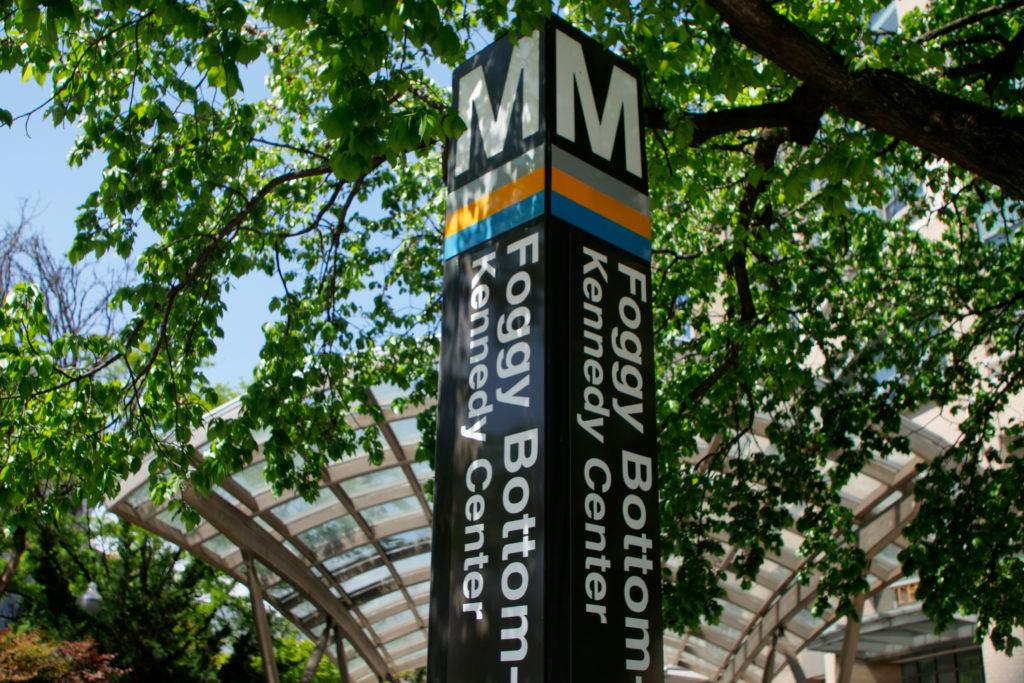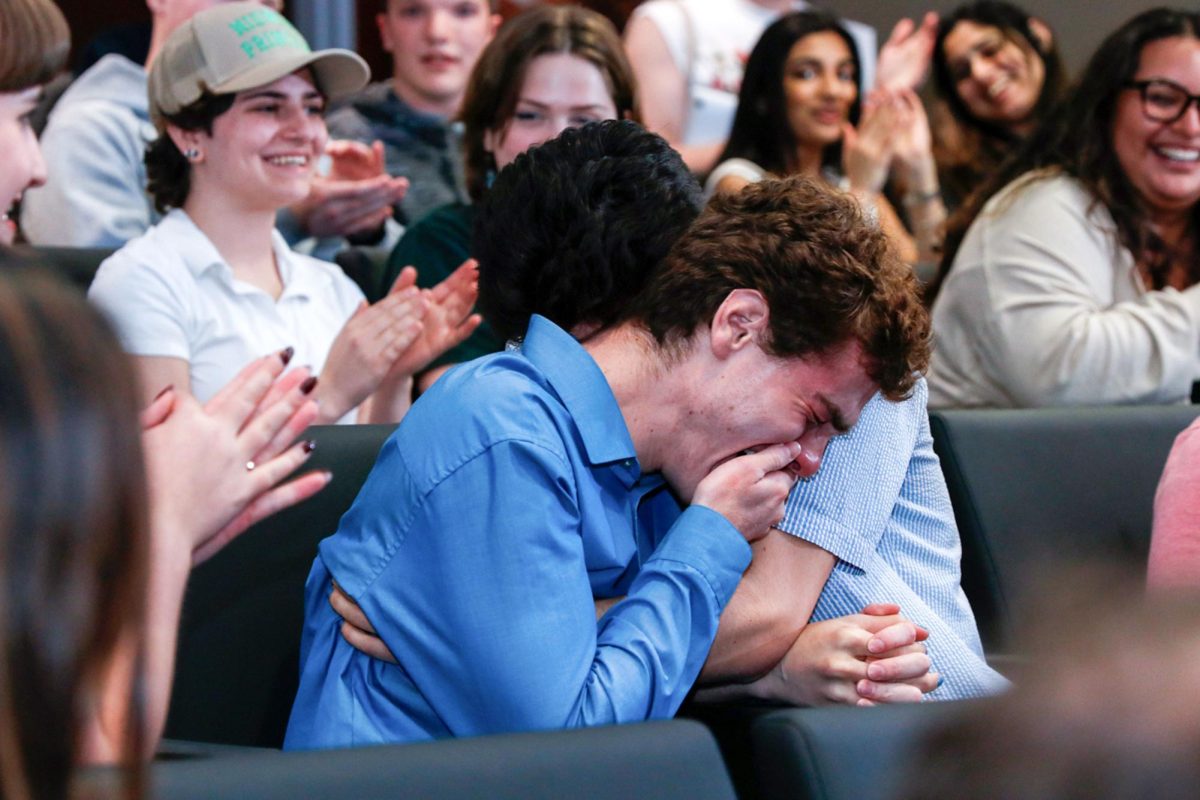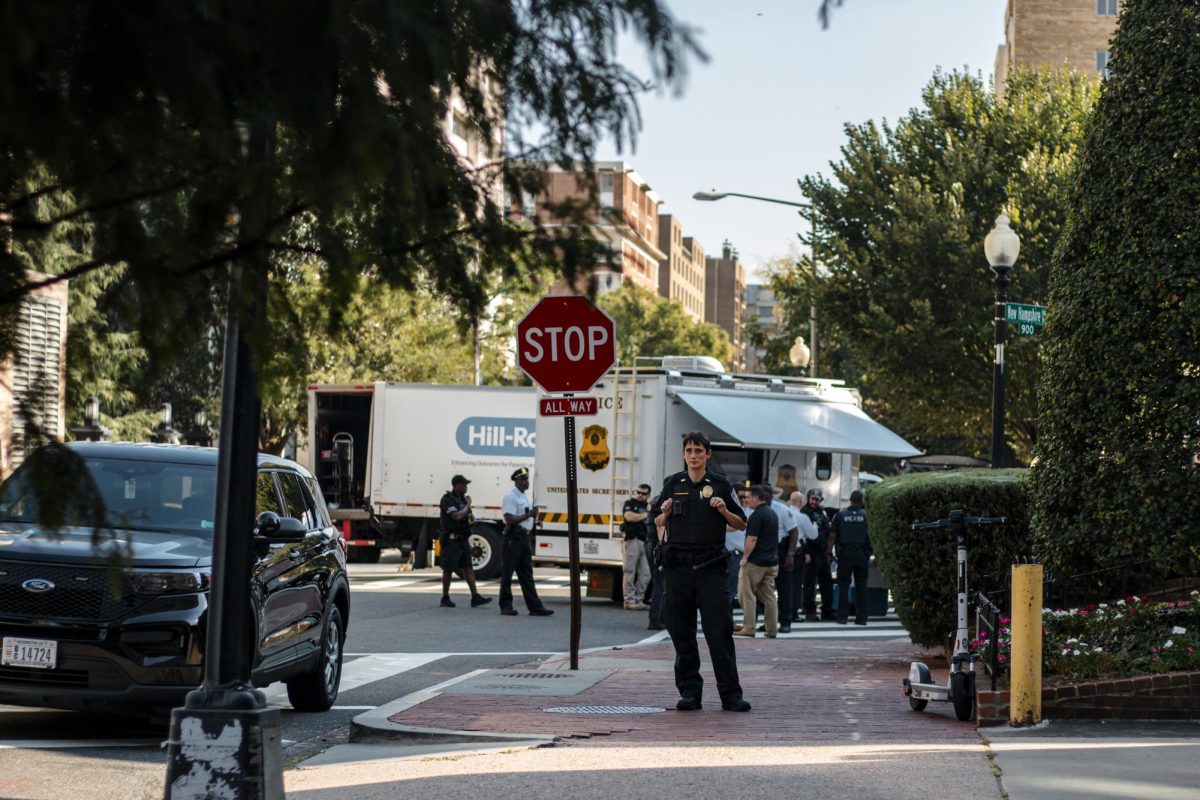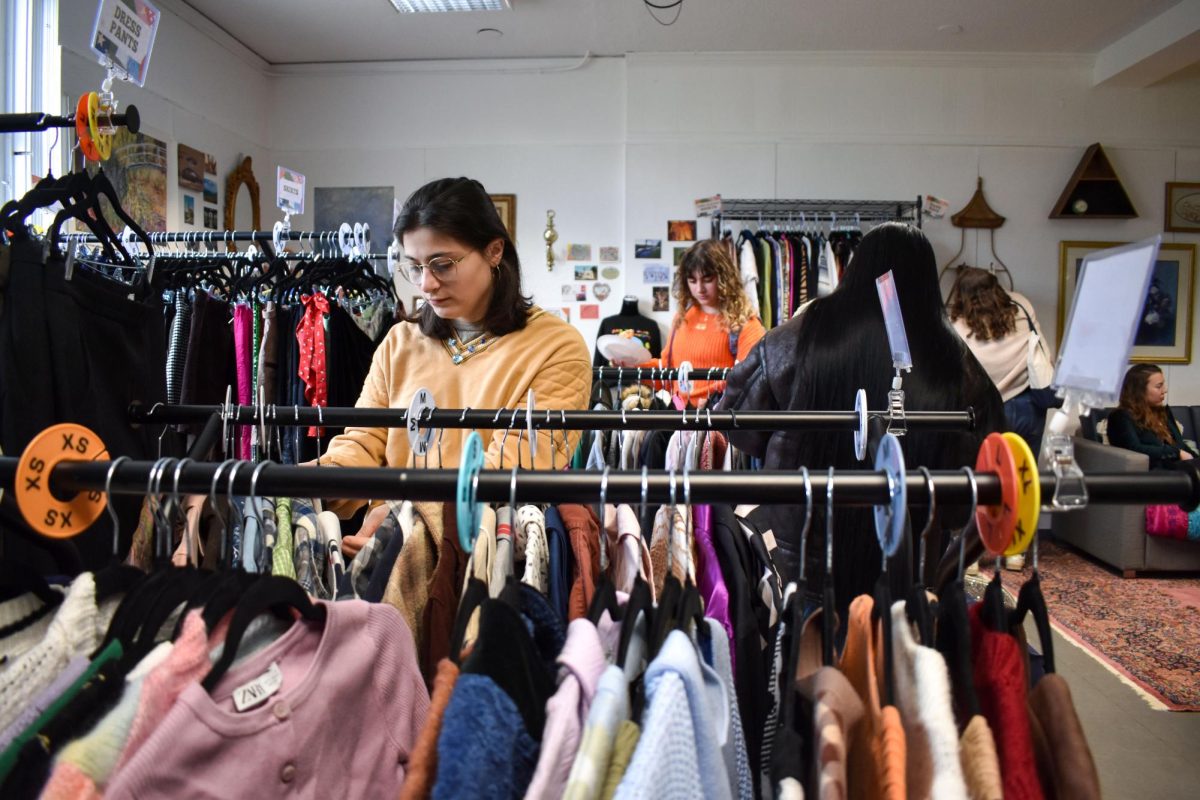Updated: Nov. 5, 2021 at 11:15 a.m.
Students will soon have access to unlimited Metro rides after a years-long push from student leaders for officials to enroll in the U-Pass program.
Officials will announce Friday that the University will participate in a “free trial” of the program to offer students unlimited rides on Metrorail and Metrobus starting Dec. 1 through the end of final exams before tacking on student fees to the program in the spring. Chief Financial Officer Mark Diaz said in an interview that undergraduates will be automatically enrolled in the program for a $100 charge per semester while graduate students can opt out.
Diaz said U-Pass will enable students to travel throughout the city affordably, tying the initiative to administrators’ multi-year effort to enhance the student experience.
“I keep hearing about the ‘geographic endowment’ or the ‘D.C. variable’ as it relates to GW, and that’s great if you can point to it, but if you can actually really experience it, that’s more powerful,” Diaz said in the interview.
Officials said they will release details for students to obtain their U-Pass cards in the coming weeks.
Diaz said GW will partially subsidize the program’s semesterly rate, which Metro advertises as costing about $130 each semester. He said officials renewed talks with Metro about U-Pass in May, spearheaded by Bruno Fernandes, the vice president of finance who had just been hired at the end of the spring.
Student leaders have spent years pushing the University to implement U-Pass, but officials repeatedly declined the prospect of the program because of its cost and lack of flexibility for students.
“This has been something that the students have wanted for a long time, and so we’re just picking up where all of those efforts, desires left off,” Diaz said. “But now this is really about taking it to the finish line and executing.”
Students will receive a “specially-designed” Metro card featuring GW’s logo over the school’s monogram, according to a release WMATA issued Friday. The release states the partnership with GW, the largest University to join U-Pass, will generate additional revenue for the transit service.
“We welcome GW to the U-Pass program, connecting students to opportunities across the region with an affordable, sustainable transportation option,” Metro General Manager Paul Wiedefeld said in the release. “We appreciate the work of University leaders, students and the administration in seeing the value and benefits of transit for the GWU community.”
Fernandes, who previously served as D.C.’s deputy chief financial officer, said WMATA initially wanted to enroll all full-time students in U-Pass, but officials raised concerns about including international students and students who live outside of the Metro’s reach. Fernandes said the flexibility for graduate students under the current plan is a “substantial benefit.”
“They looked at the entire population of full-time students, and their definition of that included all full-time students,” Fernandes said. “And they didn’t make the difference between who was eligible to be able to ride or who couldn’t ride.”

Nicholas Anastacio | Graphics Editor
Metro officials had previously said an opt-out option was “not under consideration” when students advocated for U-Pass in 2019.
As GW continued negotiations, Student Association Vice President Kate Carpenter said she and SA President Brandon Hill started meeting in September with Diaz and Destiny Jackson, the director of transportation and logistics, to advocate for students’ desire to implement U-Pass and ensure that the added fee would be covered by financial aid packages.
The two SA leaders’ push for the program followed years of promises from student leaders to work with officials to implement U-Pass.
Officials had discussed implementing the program with student leaders and WMATA in early 2016. But after nearly three-quarters of students voted in support of implementing U-Pass in a referendum that March, administrators declined to enroll, saying the cost would not be “feasible or fair” for students.
“This is just a really special thing that we’re really excited to get to show the student body that there’s a working relationship between SA, the student body and the administration,” Carpenter said. “And when that working relationship works, we can get stuff done.”
She said the program will expand opportunities for students to explore the city and access off-campus internships and additional transportation options. She said the unlimited rides will encourage students to go back to riding Metro as the District continues to emerge from the pandemic, when ridership numbers plummeted, draining WMATA’s revenue before stimulus funding stabilized service levels in 2021.
“It also helps with safety and security,” Carpenter said. “Instead of having to walk home, you are going to be able to Metro home.”
The announcement comes as WMATA faces scrutiny after a train derailment set back service last month, prompting Metro officials to pull about 60 percent of its fleet following the incident. The move created delays on all Metrorail lines expected to last through at least Nov. 15.
Hill, the SA president, said U-Pass will provide students with “equitable” transportation across the D.C. area. He said he has been meeting with University leaders about U-Pass since he joined the SA executive branch last year, and his consistent conversations have helped pave the way for the program’s implementation.
“Now students have increased opportunities to do more service – they’re able to better explore the city and take pride in the D.C. community,” Hill said in an interview. “And U-Pass really breaks down that barrier to that. It’s been something students have been craving for a while.”
Vice President of Student Affairs and Dean of Students Cissy Petty said U-Pass will enable officials to expand District Connections, a program launched in 2019 to organize free group activities around D.C. for students, to more locations outside of Foggy Bottom and across the city. Carpenter announced last month that the SA is now collaborating with the University on District Connections to fill gaps in the program, with SA senators volunteering to take students on excursions around D.C. this semester.
Petty said she is “thrilled” that students will have more accessible transportation to engage with the District and create “memorable” experiences.
“We’re not really responding to a cost factor as much as we are responding to a need,” Petty said in an interview. “And usually, it’s the reverse. And one thing I have learned about GW, and what I think that we’ve been able to grow, is that care and safety come first for students as a culture.”
Jarrod Wardwell contributed reporting.
This post has been updated to include the following:
This post has been updated to include a release that WMATA issued Friday.










